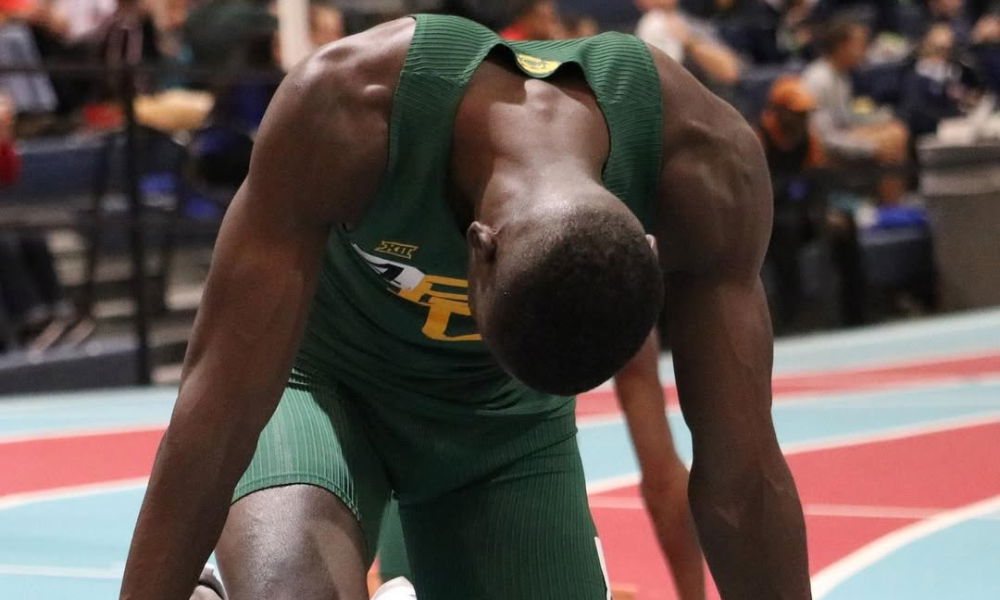
Imago
Credits: Instagram

Imago
Credits: Instagram
After Friday night, the college sports landscape changed forever. With the $2.8B NCAA vs House settlement officially approved, some drastic changes were brought in, leaving many skeptical. With athletic departments now having to share revenue, what will happen to the sports that make less money? Will basketball and football always get the edge? Or will it be doomsday for sports like tennis and track and field that, at times, often bring in neither revenue nor TV exposure?
Watch What’s Trending Now!
Something really concerning has come to light, and many track and field fans are wondering if this is the start of the fall of college sports. Some decisions were anticipated to keep the new revenue-sharing idea in check. Such as reducing scholarships or cutting down costs wherever feasible, especially in the non-revenue sports domains. But no one expected something this monumental to happen so soon after the NCAA settlement…
ADVERTISEMENT
On June 17, Chris Chavez, founder of the CITIUS MAG track and field podcast, provided an update through X that shocked many to their cores. He informed us of Washington State University’s announcement on June 16 that it will be shifting to a “distance-focused approach” and “field events (e.g., jumps, throws) will no longer be supported, effective immediately.” Not just this, even the sprint and hurdling opportunities will have a cap, reducing them to a limit going forward.
This step led to some serious reactions from the track and field fans. One of them straight up said, “That is terrible.” While another one gave a sarcastic nudge, “Welcome to the revenue-sharing era.”
ADVERTISEMENT
We’re going to see some changes to NCAA track and cross country programs very soon.
Today, Washington State announced it will be shifting to a “distance-focused approach” and “field events (e.g., jumps, throws) will no longer be supported, effective immediately, and the number… pic.twitter.com/K2KJ6lL4dc
— Chris Chavez (@ChrisChavez) June 16, 2025
Besides announcing that Washington State will now be transitioning to this approach, the University also notified that they will still honor the program cut-impacted students with scholarships. And help others who want to transfer to other colleges. However, looks like this is too little to keep the track and field fans assured.
ADVERTISEMENT
Track and Field fans were unable to digest this news
Reacting to this sudden blow, a track and field fan wrote, “Really bummed about this. Always enjoyed hurdling against the Cougs. Shoutout CJ Allen, Jesh Anderson!!” While they made sure to give a shoutout to their favorites, there’s a total of 30 athletes impacted by this call, 15 from each men’s and women’s teams, which is no small number. That’s a lot of dreams thrown to the toss, and no shoutouts or compensations can undo that.
ADVERTISEMENT
Another fan commented, “The negative side of NIL nobody wants to talk about smh.” Well, with the recent developments around NIL, the transfer portal, and the House vs. NCAA settlement approval, it’s only fair if track and field programs across the country brace for impact. No wonder even Olympic champions are issuing warnings for collegiate track and field athletes to be wary going forward.
But it’s not just the aftermath of the NCAA settlement. This may have also been a strategic move made by Washington State University. One of the fans broke this down well. They said, “I understand the move. Way better shots at scoring in distance events (foreign recruits, getting a nice transfer) vs recruiting/developing good sprinters. S–ks but folks be in win now mode.”
ADVERTISEMENT
Well, it may not be a coincidence that this step comes after WSU’s distance program peaked to some serious success this season. There was a sophomore named Evans Kurui, who recorded the fastest 10,000-meter run in the country and finished fifth at nationals in the event. But, whatever may have caused this decision, it truly is a big concern for track and field as a sport, as the sport’s future is put at stake!
ADVERTISEMENT
ADVERTISEMENT
ADVERTISEMENT